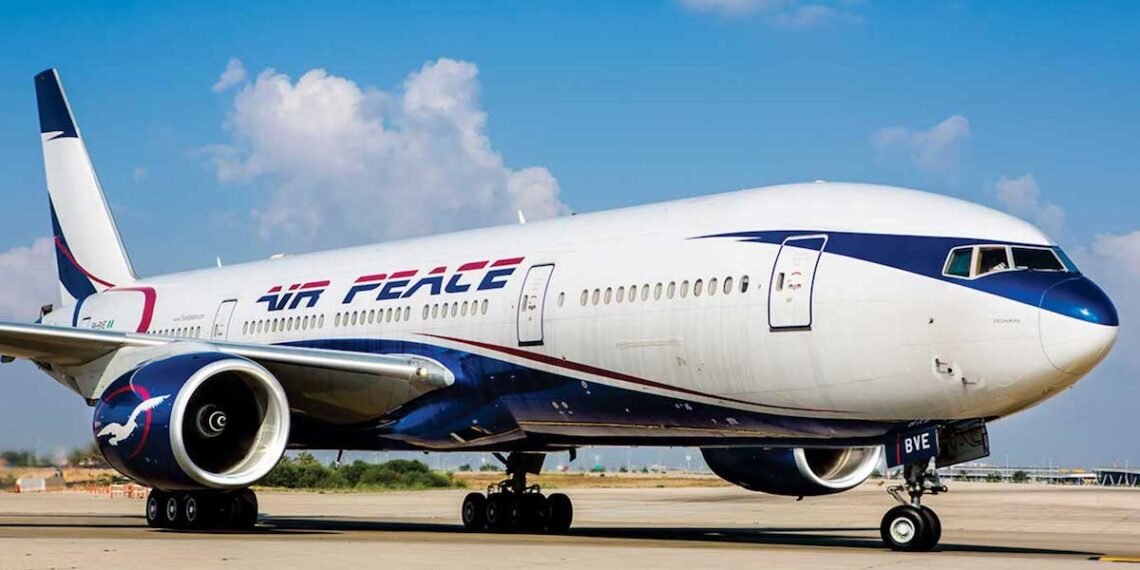In a move to reshape the aviation landscape between Nigeria and the United Kingdom, Nigerian carrier Air Peace has dramatically lowered business class ticket prices on its Lagos-to-London route. What was once a luxury affordable only to the elite, costing upwards of $11,000 has now become accessible to a broader audience at around $3,000. This price disruption not only challenges established international airlines but also highlights the potential for African carriers to compete on global stages.
The High Cost of Flying Before Air Peace
According to the Minister of Aviation, Bar Festus Keyamu, prior to Air Peace’s entry into the market, flights from Lagos to London were notoriously expensive, especially in business class. Foreign airlines like British Airways and Virgin Atlantic dominated the route, with business class fares often exceeding N17 million naira, equivalent to approximately $11,000 based on exchange rates at the time.
Economy tickets weren’t much better, frequently hovering around N6 million naira, or about $4,000. These high costs were attributed to limited competition, high operational expenses, and the monopolistic hold of legacy carriers on the lucrative West Africa-Europe corridor. Nigerian travelers, including business professionals, students, and families, often faced prohibitive prices that stifled travel and economic ties between the two nations. The situation was exacerbated by Nigeria’s economic challenges, including currency fluctuations and inflation, making international travel a distant dream for many.
Read Also:
- Air Peace claims safety concerns are causes of flight delays, cancellations
- More Trouble for Air Peace as Kano Emirate May Take Action Against Airline in 24hrs
- Nigeria to receive first dry-lease Aircraft on October 6 after exiting AWG watchlist
Air Peace, Nigeria’s largest airline, launched its direct Lagos-to-London flights on March 30, 2024, marking a significant milestone for African aviation.
To make an immediate impact, the airline introduced aggressive pricing strategies. Business class tickets were offered at N4 million naira, roughly $2,600 to $3,000, representing a slash of over 75% from prevailing market rates.
Economy fares were similarly reduced to N1.2 million naira, or about $800.This wasn’t just a promotional stunt; it was a calculated effort to democratize air travel. Air Peace’s CEO, Allen Onyema, emphasized the airline’s commitment to affordability, stating that the goal was to “distort the market” in favor of Nigerian consumers.
By operating Boeing 777 aircraft with modern amenities, Air Peace ensured that lower prices didn’t compromise quality, offering lie-flat seats, premium dining, and enhanced entertainment in business class.The airline’s strategy extended beyond pricing. Special discounts, such as a 15% reduction for students under 25 on the London route, further broadened accessibility.
Flexible payment options, like “Pay Small Small” installment plans, allowed travelers to lock in fares with just a 10% down payment.
This competition has been a boon for consumers. As of October 2025, business class flights from Lagos to London on Air Peace start at around $2,494 for one-way tickets, with round-trip options often falling under $3,000.
Overall market fares have stabilized at more affordable levels, with nonstop options available from as low as $728 in economy on Air Peace.
.
Broader Impacts on Travel and Economy
The fare reductions have had ripple effects beyond just ticket prices. Travel volumes between Nigeria and the UK have surged, boosting tourism, business exchanges, and family reunions. Nigerian expatriates in London, numbering over 200,000, now find it easier to visit home, strengthening cultural and economic ties.
On the economic front, Air Peace’s success demonstrates the viability of indigenous African airlines in international markets. It has created jobs, stimulated local aviation infrastructure, and reduced Nigeria’s reliance on foreign carriers for forex outflows. One year after launch, the route continues to redefine accessibility, with Air Peace maintaining its disruptive edge.
Challenges remain, including fluctuating fuel costs and regulatory hurdles, but the airline’s resilience, evident in periodic fare adjustments like a N600,000 reduction in March 2025, shows its commitment to sustainability.






